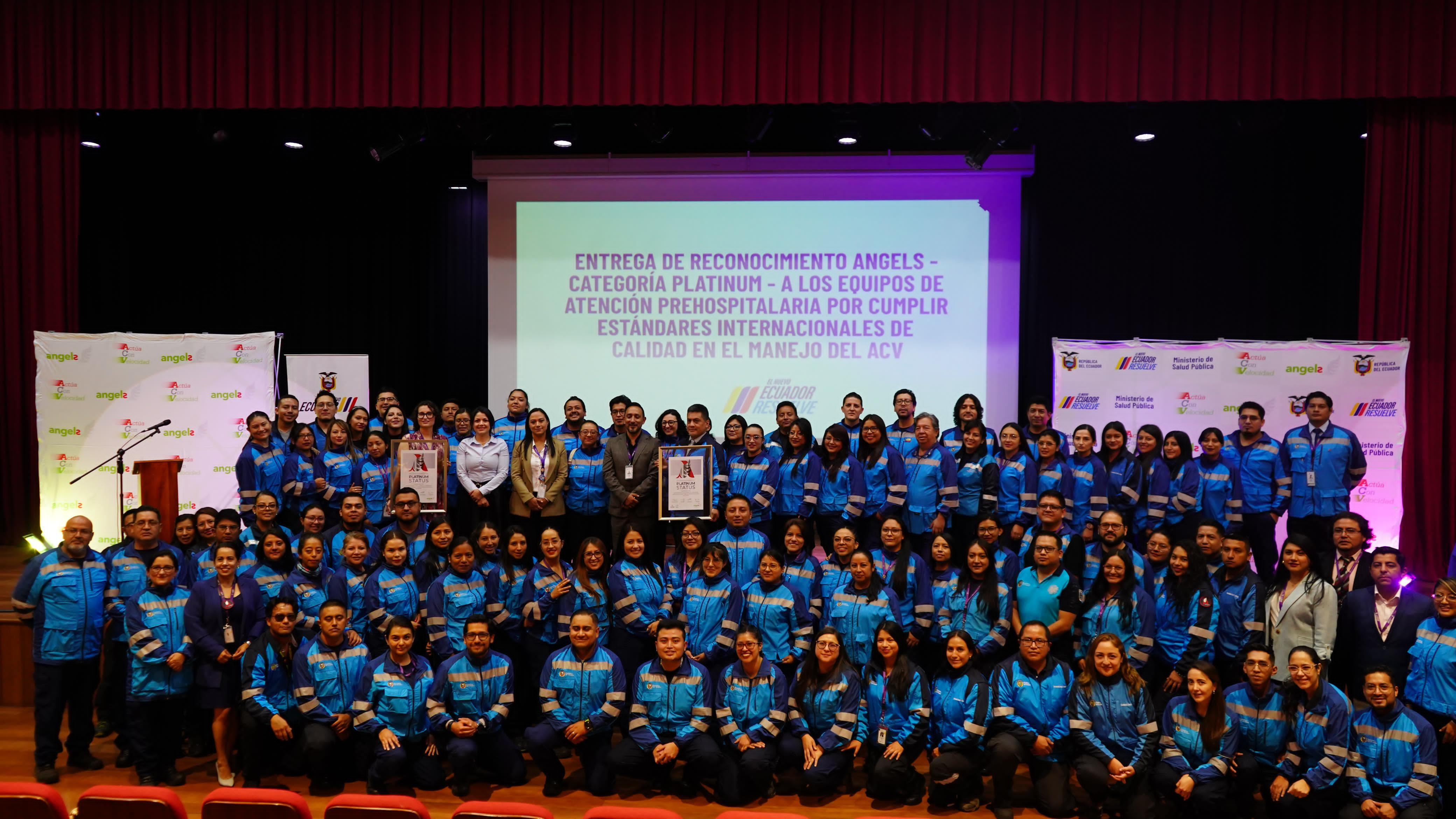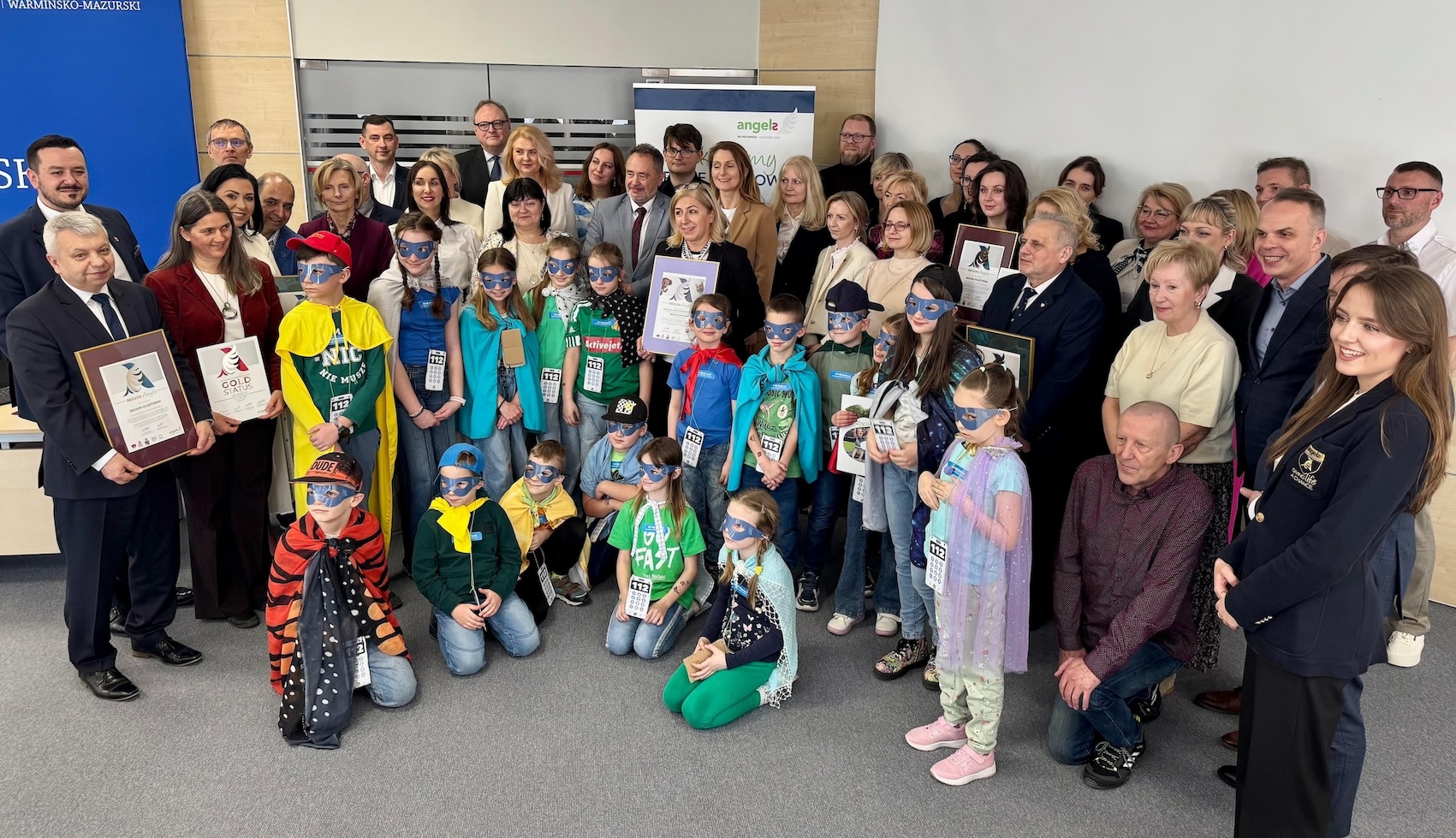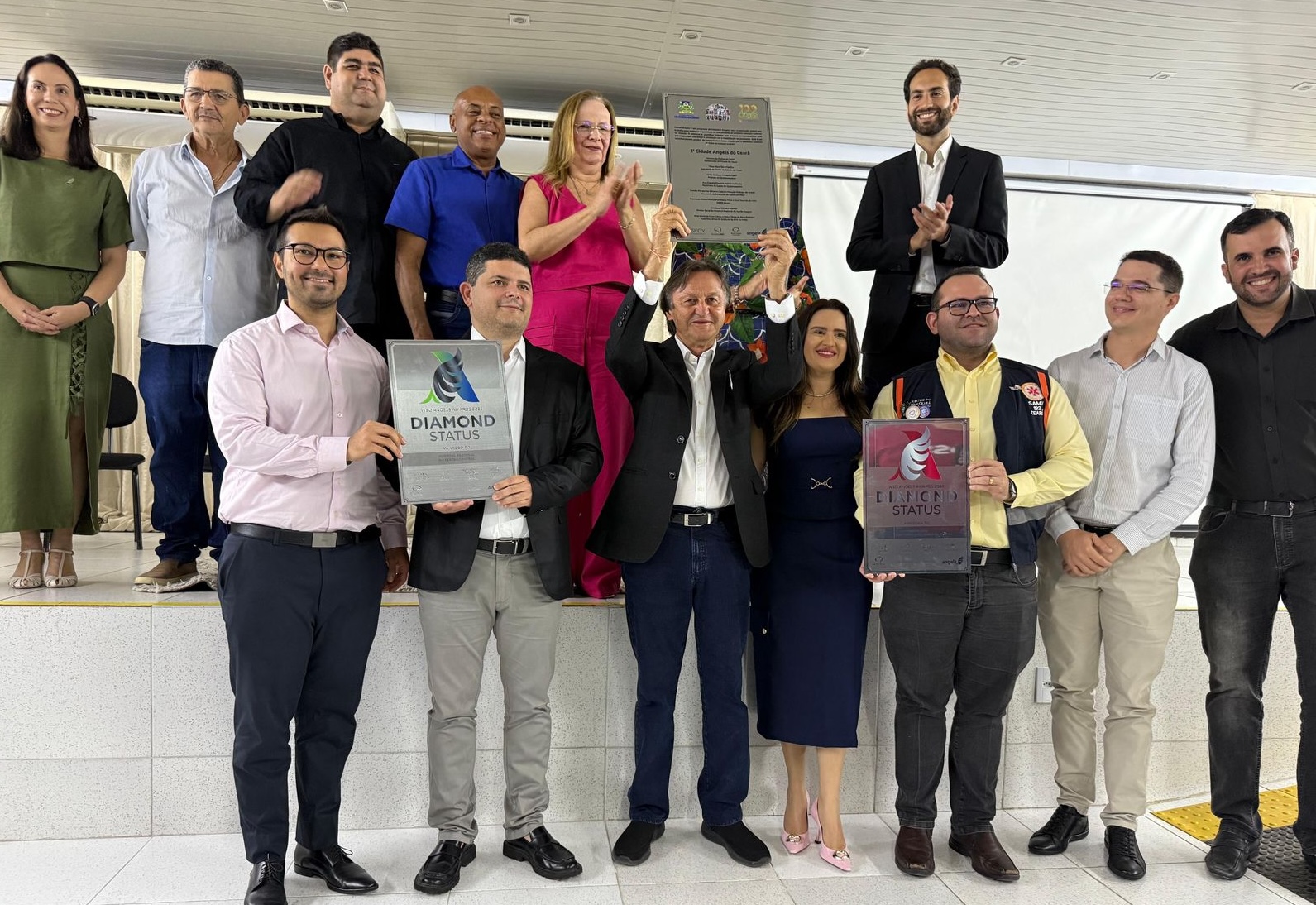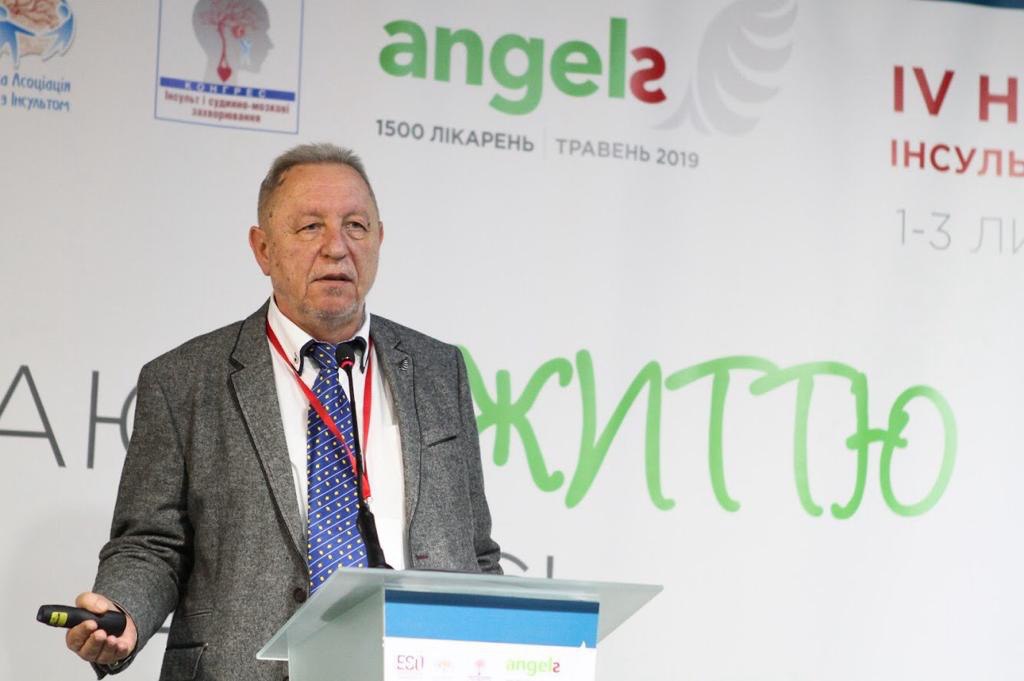
TEN years ago, the system of care for acute cerebral stroke in Ukraine was based on the principles of post-Soviet medicine, when stroke was not recognised as a separate and specific medical and social problem. Treatment was provided in general-purpose beds, mainly in non-specialised neurological wards, and in intensive care and intensive therapy units, depending on the severity of the patient’s condition, the level of impaired consciousness, and so on.
Sixty to 70 percent of patients were hospitalised; a lack of equipment meant neuroimaging was performed in a fraction of cases and mostly in private facilities, within 1 to 7 days from the onset of symptoms, and there was practically no specific treatment.
The emergence of a thrombolytic agent in Ukraine was hampered by fear of the procedure, the lack of organisation of the process of rapid detection, urgent admission to the hospital and urgent neuroimaging, and the absence of decision-making skills and standards. As a result, in 2016 a total of 306 thrombolysis procedures were performed at 41 hospitals in Ukraine – 86 of these at one hospital in Vinnytsia. Of the remaining institutions, 13 performed 10 or more procedures.
The lack of organisational principles creating specialised institutions focused exclusively on stroke care remained a problem. The level of staff training was low, and the existing personnel were generally unaware of stroke issues, modern approaches to treatment, and patient care. In addition, there was practically no modern rehabilitation for this group of patients.
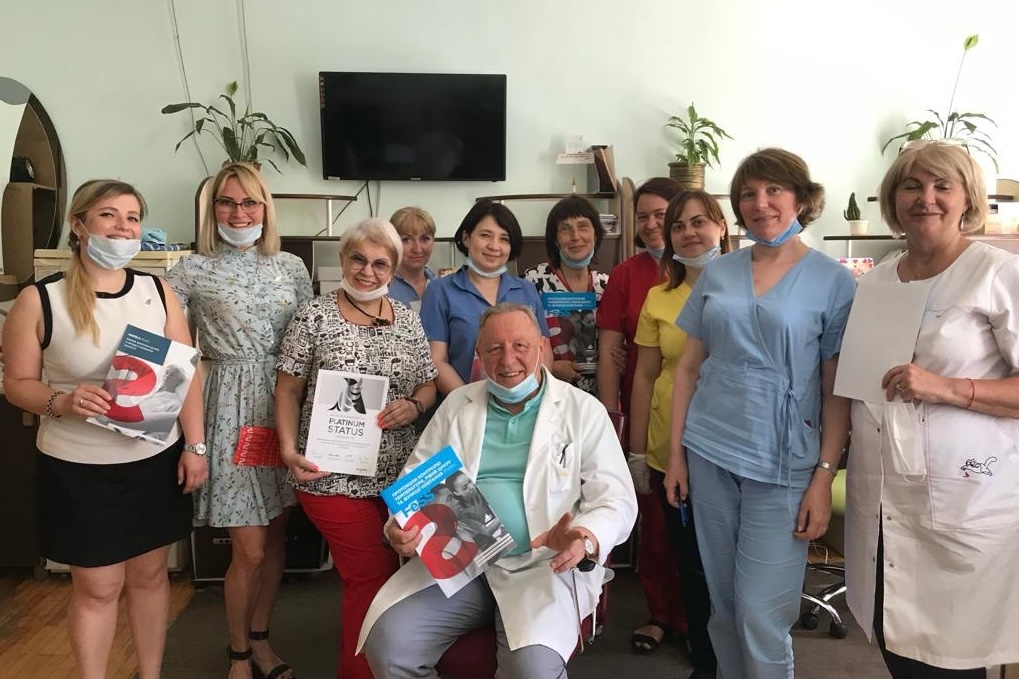
Work to reform the system had however begun several years earlier, driven by a group of enthusiasts, specialists and experts in stroke treatment. They developed the first standard protocols based on international guidelines, created regulatory documents with the support of the Ministry of Health, and held the first specialised conferences, seminars and national congresses on stroke. This activity was mainly conducted within the framework of the newly formed Ukrainian Stroke Medicine Society.
The Angels Initiative arrived in Ukraine in 2016 and brought a real qualitative breakthrough in changing the general paradigm and approaches. It is a powerful, balanced, and comprehensive programme that aims not only to change and improve knowledge and ideas about the current state of affairs in stroke medicine, but also to enhance practical skills in diagnosis, treatment, patient care, prevention of complications, controlled discharge and early active rehabilitation. The programme comprehensively covers the entire chain of organisation and provision of assistance – from raising public awareness of stroke and its detection, to emergency response and transfer of the patients to stroke-ready institutions, and the very process of work of the multidisciplinary team in the hospital.
Angels facilitated many conferences, seminars and webinars involving both local and foreign experts. They introduced a radically new methodology for transferring knowledge, namely simulations that involved the attendees themselves in practical activities.
The result of this approach was a certain catharsis, a complete restructuring of the understanding of stroke care among a wide range of stroke personnel including doctors and nurses. Intensive nursing training has become an important component of the overall strategy of the Angels Initiative, with numerous webinars and in-situ simulations reaching hundreds of nursing staff in stroke units.
With the support of the Angels Initiative, a group of Ukrainian stroke experts including Prof Sergii Moskovko and Drs Mykhailo Tonchev, Pavlo Lebedynets, Dmytro Lebedynets and Andrii Nos established the country’s first stroke simulation centre in Poltava. Opened by Dr Robert Mikulik (head of ESO-EAST and RES-Q) on World Stroke Day in 2018, it represented a substantial development towards elevating stroke treatment standards and providing enhanced medical care to patients.
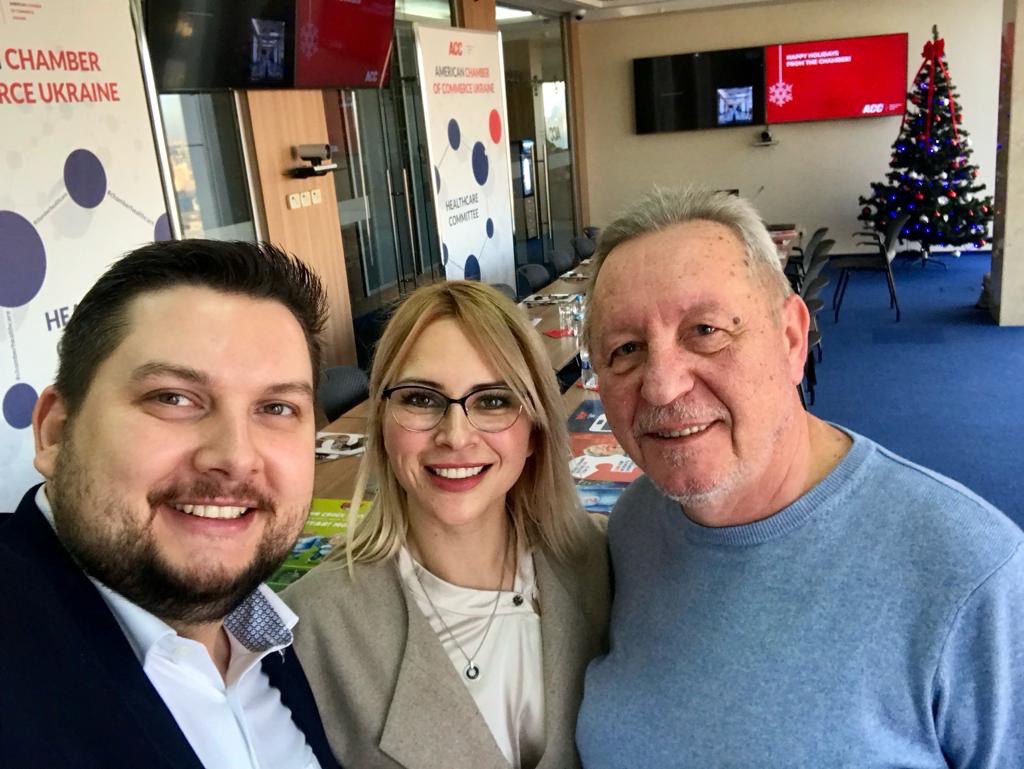
Ukraine subsequently became a good example of how to build and improve stroke care, including for other countries that were developing their stroke service. Since December 2019, international educational simulation training events for doctors from Kazakhstan, Georgia, Uzbekistan, and Armenia have significantly contributed to enhancing the qualifications of healthcare personnel from Eastern Europe and the Central Asia countries.
In June 2020, the Ukrainian Stroke Medicine Society was established, and its members elected Prof Sergii Moskovko as president and Drs Dmytro Lebedynets, Mykhailo Tonchev, Yurii Cherednychenko and Olha Biletska as board members. Poltava stroke simulation centre was its first educational hub, with further extension to Dnipro, Kyiv and Lutsk. In pursuit of its mission to promote stroke medicine in Ukraine by fostering research, providing educational opportunities, and cultivating cooperation among healthcare practitioners, the Society conducts numerous sessions of simulation trainings in individual institutions using the methodology of the Angels Initiative. Nowadays the Society is one of the largest professional medical societies in Ukraine and consists of more than 1,400 members.
The situation continued to be changed radically in 2020 with the introduction of specialised care as part of the second stage of medical care reform. The first stage had been the creation of the institute of family doctors, primary care, and the reform of the emergency medical care service. Changes in the principles of financing health care institutions occurred at the same time resulting in the National Health Service of Ukraine (NHSU) becoming the main customer and payer for the service provided, and the introduction of fixed tariffs for inpatient care for each group of diseases.
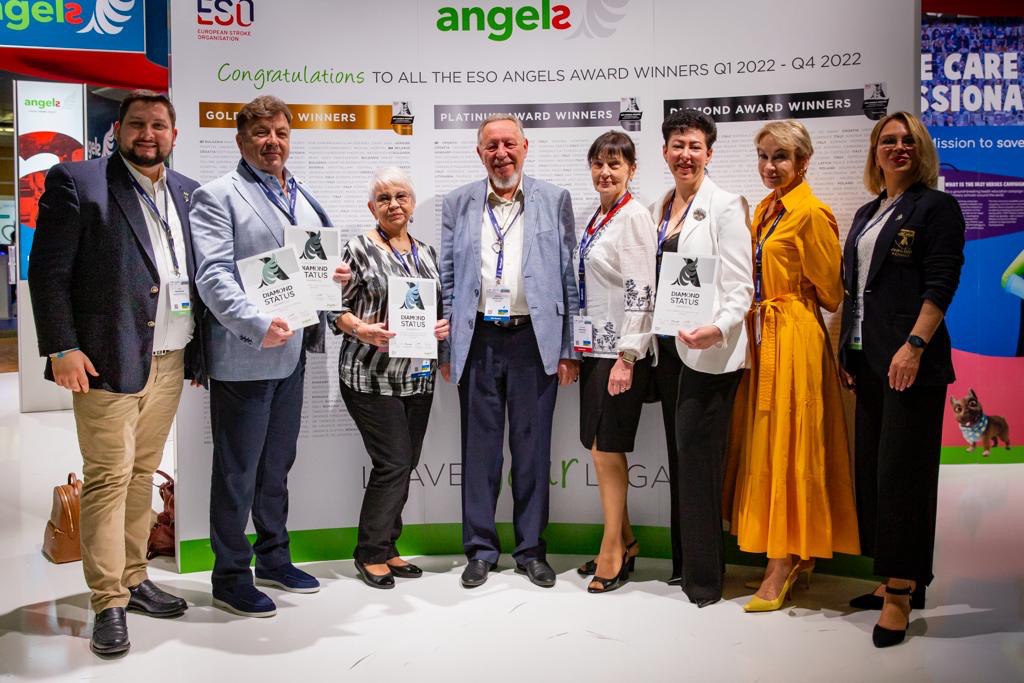
In the second stage, payments were significantly increased for priority services including myocardial infarction, stroke, and childbirth. This stimulated healthcare institutions to develop specialised care in these areas, as well as the acquisition of specialist equipment (SCT tomographs, CT scanners and equipment for endovascular intervention).
In 2022, stroke care remained a priority for the Ministry of Health in Ukraine, with dedicated per case payment to support effective treatment. Notably, 91 percent of stroke patients were reported to be hospitalised in NHS-contracted hospitals that met the minimal criteria for stroke care. The NHS data covered 90 percent of all stroke patients in the country.
Despite the challenges posed by the ongoing war, the administration of intravenous tissue plasminogen activator (IV tPA) and mechanical thrombectomy (MT) showed a consistent increase year by year, with 6.8 percent of all stroke cases undergoing treatment (6.4 percent for IV tPA and 0.8 percent for MT).
To further improve stroke management, the Standards of Care for Intracerebral Haemorrhage (ICH) and Secondary Stroke Prevention were created in 2022, incorporating the latest advancements in stroke care.
Efforts to ensure timely access to specialised care were also evident, as Emergency Medical Services (EMS) transported suspected stroke patients exclusively to NHS-contracted hospitals, facilitating prompt evaluation and treatment.
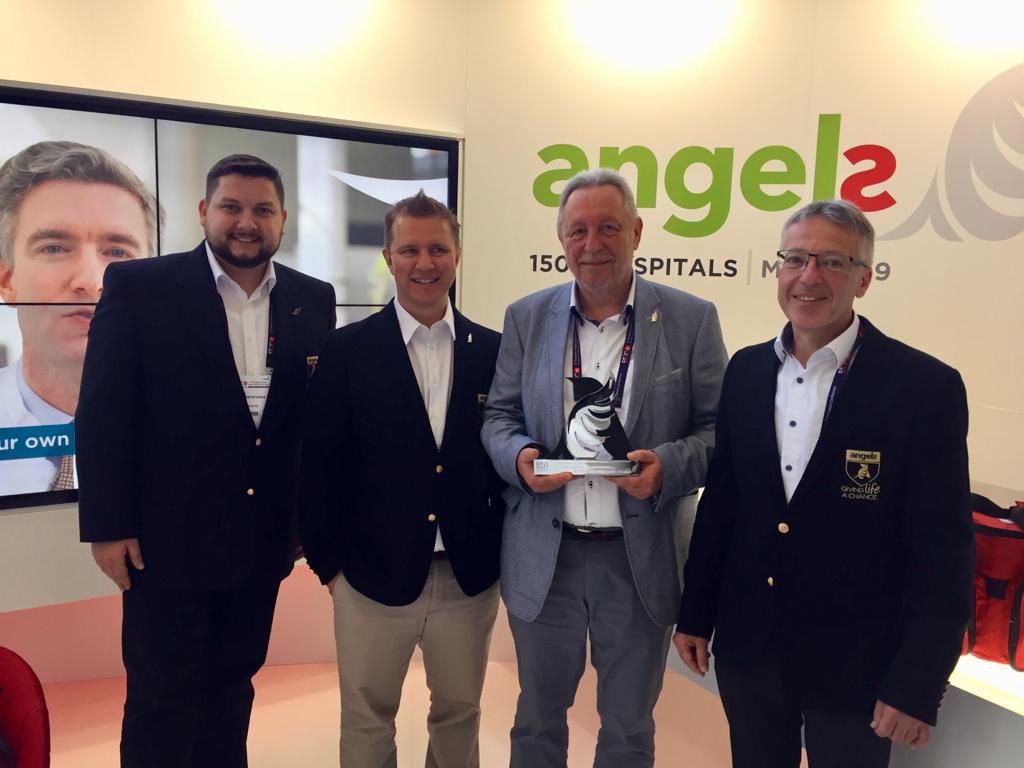
The rapid change in the landscape of stroke care and the increase in the revascularisation rate are not only associated with structural changes in the system of stroke care, but also with changes in the perspective of specialised personnel, qualitative changes in the training system, and the beginning of the creation of a professional specialised community. This explains the Ukrainian phenomenon of rapid progression in stroke care and, hopefully, the correct path that has been chosen.
Of course, a number of problems and challenges remain. The most important issue is the quality of care and process control at all stages. The introduction of quality assessment standards at a governmental level, a transparent information system, and the assessment of the functional state of patients 90 days from the onset as an integrated evaluation of the entire chain of efforts should complete the formation of an integrated system of stroke care in the near future.
The participation of individual institutions in the RES-Q registry and their performance in the ESO Angels Awards not only demonstrate the potential of Ukrainian health care institutions, but also point to the need for a comprehensive, functional national stroke registry. Only tracking long-term treatment outcomes can provide answers to current questions about the quality of care and directions for necessary changes.
But despite all the external hardships, threats, and challenges, the Ukrainian community of stroke medicine professionals is demonstrating resilience, creativity and big potential.
*This story will be updated with data for 2023 as soon as these become available.

